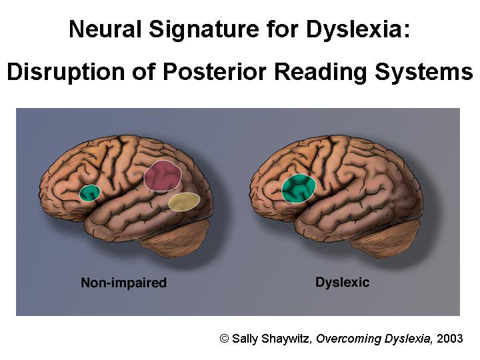About Dyslexia
Q: What Is dyslexia? A: Dyslexia is a specific learning disability that is neurological in origin. The definition of Dyslexia by The International Dyslexia Association (November 2002) states that:
“It is characterized by difficulties with accurate and / or fluent word recognition and by poor spelling and decoding abilities. These difficulties typically result from a deficit in the phonological component of language that is often unexpected in relation to other cognitive abilities and the provision of effective classroom instruction. Secondary consequences may include problems in reading comprehension and reduced reading experience that can impede growth of vocabulary and background knowledge.”
The National Institute of Child Health and Human Development (NICHD) also use this definition.
Dyslexia is a type of specific learning disability that causes difficulty mainly with reading, but also with writing, spelling and word pronunciation. Other difficulties may include problems with the memory and processing information. This means they may have problems remembering and blending sounds when reading, recalling information and familiar words and following multiple instructions. Things may not be automatic for them and they have to concentrate on the task at hand. Dyslexia is a life-long condition and affects 3-10% of people. There is also a genetic link to dyslexia, therefore it can be inherited.
People with dyslexia have been shown in studies to use a different part of their brain in the process of information. Many people are also shown to have intelligence which is average to above average.
Source: The International Dyslexia Association
Normal and dyslexic brains differ during reading
 Brain scans revealed under activity in centres towards the rear of a dyslexic’s brain when they were challenged in a reading test. A region toward the front of the brain was overactive but didn’t perform well.
Brain scans revealed under activity in centres towards the rear of a dyslexic’s brain when they were challenged in a reading test. A region toward the front of the brain was overactive but didn’t perform well.
The findings provide dramatic evidence that people with dyslexia are not poorly taught, lazy, or stupid, but have an inborn brain abnormality that has nothing to do with intelligence, say the scientists from Yale School of Medicine.
Source: Boston Globe
Strengths of dyslexia
Many people with learning differences of dyslexia are capable of some extraordinary thinking and can be extremely successful, once they learn some management strategies. This is why we prefer to call them, more appropriately, Creative Thinkers. Some of their strengths include:
- Persistence
- Concentration
- Perception
- Vivid imagination
- Creativity
- Drive and ambition
- Curiosity
- Thinking in pictures, instead of words
- Superior reasoning
- Capable of seeing things differently from others
- Event management
- Love of complexity
- Simultaneous multiple thought processing
- Quickly mastering new concepts, and
- Not following the crowd
Source: DyslexicHelp.co.uk
Famous people with the gift of dyslexia
There are thousands of very successful people in life living with dyslexia. Millions around the world learn to manage and understand who they are and how to adapt to their situations. Some famous people with dyslexia include:
- Orlando Bloom
- Tom Cruise
- Henry Winkler
- Danny Glover
- Whoopi Goldberg
- Keanu Reeves
- Albert Einstein
- Leonardo da Vinci
- Ansel Adams
- Pablo Picasso
- Andy Warhol
- John Lennon
- Muhammad Ali
- Richard Branson
- Henry Ford
- Steven Spielberg
…and many more.
Source: Dyslexia.com

